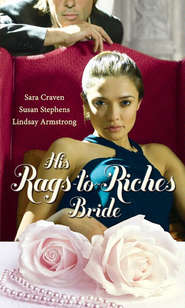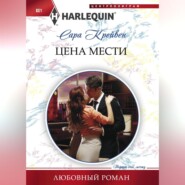По всем вопросам обращайтесь на: info@litportal.ru
(©) 2003-2024.
✖
Inherited by Her Enemy
Автор
Год написания книги
2018
Настройки чтения
Размер шрифта
Высота строк
Поля
My God, she thought in self-derision, as she pulled it towards her. Is this the moment I find a new will and all our problems are solved?
But what she’d discovered, in fact, was a map of France’s Burgundy region. And no need to wonder why it was here, hidden away.
She stared down at it for a long moment, fighting her curiosity with resentment. Telling herself it was of no interest to her where Andre Duchard came from, even as she opened the map and spread it on the desk.
And found Terauze, heavily circled in black, jumping out at her. Saw too that the map itself was beginning to tear at the creases, evidence of heavy use. All those trips abroad, she thought, dismissed airily by her mother as ‘more boring business’. As some of them must have been, because the company order books were always full.
She’d once asked Rosina, ‘Hasn’t Andrew ever asked you to go with him?’
Her mother had shrugged evasively. ‘My dear child, it’s just one meeting after another. He’s far better on his own.’
And so, of course, was Rosina with her golf lessons, her bridge friends, and her ladies luncheon club in nearby Lanchester, Ginny had mused drily.
But, under the circumstances, Andrew probably preferred to keep his secret, and encouraged his wife to stay at home.
But surely he must have realised the devastating effect the eventual revelation would have? Ginny argued. Or didn’t he care?
No, she thought, I don’t believe that for a minute. Because he was a kind, dear man, and taking on a widow and her two daughters must have been quite an enterprise. So what changed?
With a sigh, she looked back at the map. Burgundy, she mused.
Producing wine and Dijon mustard, and also, apparently, Andre Duchard. But if he was indeed Linnet Farrell’s son, as Mrs Pel thought, how had she fetched up there?
So many questions for which she would probably never find answers. And she would be better employed in trying to establish better relations.
And on that resolve, she put the map back in the drawer, took her paper and envelope and went up to her room.
There was no problem obtaining the key for Keeper’s Cottage the following morning. Mr Hargreaves did not work on Saturday mornings, but Ginny telephoned him at home after breakfast and he promised, sounding positively relieved, that he would arrange for it to be waiting for her at his office.
And for once, she was allowed without protest the use of her mother’s smart little Peugeot.
Keeper’s Cottage was on the very edge of the Barrowdean estate, and approached by a narrow lane. Built in mellow red brick, it was the kind of dwelling a child might draw, with a central front door flanked by two square windows, three more windows on the upper floor and chimneys at each end of the slate roof.
She pushed open the wooden gate and went up the flagged path between the empty winter flower beds. It was a bleak, iron-grey day with the promise of snow in the air, and Ginny huddled her fleece around her in the biting wind.
The front door creaked as she unlocked it and went in. She stood for a moment in the narrow hall, looking up the straight flight of stairs ahead of her, and taking a deep exploratory breath but she could pick up no telltale hint of damp, under the mustiness of disuse.
The downstairs rooms weren’t large, but they’d be pleasant enough when redecorated. And surely it wouldn’t be unreasonable to ask for the windows to be double-glazed.
The kitchen, reached from the dining room, had an electric cooker, and wall cupboards with space under the counter top for a washing machine and refrigerator.
Upstairs, she found two bedrooms facing each other across the passage, and a bathroom, where a pale blue suite made the room seem even chillier. The only other upstairs room was so small that it could never aspire to be a bedroom. Even a baby’s cot would swamp it.
Ginny closed the door on it, her heart sinking. For someone with enthusiasm and energy to match, Keeper’s Cottage had real potential, she thought. Rosina, however, would regard it as a sentence of banishment, and maybe she had a point.
Once again, she found herself pondering the state of a marriage she had always assumed was perfectly content. After all, people didn’t have to live in each other’s pockets to be happy—did they?
But what do I know about marriage—or love, for that matter, she asked herself derisively, remembering Cilla’s jibes earlier.
She’d liked Jonathan. She could admit she’d known a frisson of excitement when he called her, but that was as far as it had gone. Cilla’s golden, glowing return had made sure of that. And any inward pangs she’d suffered from his defection were probably injured pride.
If I’d cared, I’d have fought for him, she told herself. Anyway, it’s all in the past now, and, come June, he’ll be my brother-in-law.
But where and what I’ll be, heaven only knows.
She turned back towards the stairs then froze, as from the ground floor came the unmistakable creak of the front door opening and closing.
Her first thought was that it couldn’t be a burglar because there was nothing to steal but the cooker.
All the same, she reached into her bag for her mobile phone, only to remember it was on charge on her bedside table.
She crept to the top of the stairs and looked cautiously down into the hall.
And there leaning against the newel post, completely at his ease as he looked up at her, was Andre Duchard. He said softly, ‘Virginie.’
Once again, the sound of it made her feel as ridiculously self-conscious as if he had run a finger over her skin. She said huskily, ‘I don’t remember giving you permission to use my name. And what are you doing here?’
His gaze was unwavering. ‘Examining my inheritance,’ he said and smiled. ‘All my new possessions.’
‘Is that what you were doing last night—hanging round on the common?’
He shrugged. ‘I needed to clear my head a little.’
Ginny bit her lip. ‘Does Mr Hargreaves know that you’re here?’
‘But of course.’ The dark brows lifted. ‘I explained to him that I had never visited a hovel and wished to see for myself what such a place was like. He understood perfectly and gave me a key, which, naturellement, I have not needed to use. Because you were here first.’
She stared down at him. ‘Didn’t he tell you that I might be?’
‘No, why should that matter?’
She couldn’t think of a reason apart from how empty the cottage was—and how isolated. And that she had never expected to find herself alone with him—anywhere.
It occurred to her that in some odd way he made the hall seem even more cramped. And that with his untidy hair and the stubble outlining his chin, he was even less prepossessing in broad daylight than he had been the previous evening. He was wearing a dark roll-neck sweater under a thick jacket reaching to mid-thigh, and his long legs were encased in denim and knee-length boots.
And the silence lengthening between them was beginning to feel inexplicably dangerous.
She said hurriedly, ‘I—I’m sorry about the hovel remark. I’m afraid my mother was too distraught to think what she was saying yesterday.’
‘But today all that has arranged itself, and she is reconciled to her new situation?’ His tone bit. ‘I wish I could believe it was true.’
He glanced around him. ‘And how will she like her new home?’
The obvious reply was ‘She won’t.’ But Ginny decided to temporise.
‘Well, it’s rather small, and it does need refurbishing. But I think, in time, it could be—charming.’
‘Tout de m?me, she did not accompany you here to see for herself.’













